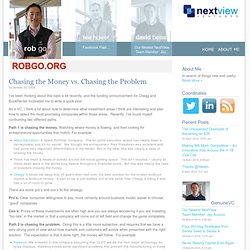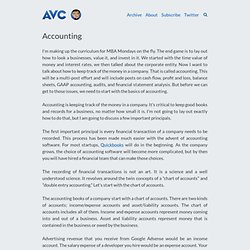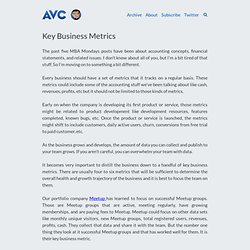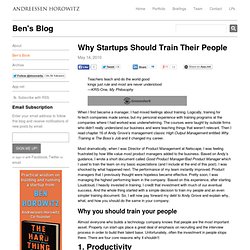

Whom Should You Hire at a Startup? (Attitude Over Aptitude) This post originally ran on TechCrunch.

Startups.We know the mantra: Team matters. Is this philosophy exaggerated? Titles and Promotions. Hmmmmmmm . . . now what's a title to fit me?

A champ like Tyson, a captain like Kirk,no Employee of the Month ‘cause yo, I do work—Big Daddy Kane, I Get The Job Done Often when I meet with startups, the employees have no job titles. This makes sense, because everybody is just working to build the company. Roles needn’t be clearly defined and, in fact, can’t be, because everyone does a little bit of everything. Action Oriented. I never worry about action, but only inaction. – Winston Churchill It's cheating to start a blog post with a quote from Winston Churchill.

He was that good. But sometimes you need to cheat and I'm doing it today. People ask me all the time about the traits I look for in entrepreneurs and action orientation is at the top of the list. Creating an operating plan for 2010. Chasing the Money vs. Chasing the Problem. Chasing the Money vs.

Chasing the Problem November 30, 2009 I’ve been thinking about this topic a lot recently, and the funding announcement for Chegg and BookRenter motivated me to write a quick post. As a VC, I think a lot about how to determine what investment areas I think are interesting and also how to select the most promising companies within those areas. Recently, I’ve found myself confronting two different paths. Why vanity metrics are dangerous. In a previous post, I defined two kinds of metrics: vanity metrics and actionable metrics.

In that post, I took it for granted that vanity metrics are bad for you, and focused on techniques for creating and learning from actionable metrics. In this post, I'd like to talk about the perils of vanity metrics. My personal favorite vanity metrics is "hits. " It has all the worst features of a vanity metric. For Startups, How Much Process Is Too Much? - The Conversation -
By Eric Ries | 10:30 AM February 24, 2010 Whether they’re found in a garage or inside an established enterprise, startups struggle with decisions about process and infrastructure.

The speed at which a startup can learn is its competitive advantage and the defining factor in its success. But startups can’t rely on the processes and infrastructure that their established competitors use, because those “best practices” tend to kill disruptive innovation. Still, startups develop some kind of process — whether it’s disciplined, haphazard, bureaucratic or empowering — because building a great product depends on it. They just need to balance process with innovation. Finding the right balance requires an understanding of the fundamental feedback loop that powers all startups. Always choose the option that minimizes the total time through the feedback loop.
Accounting. I'm making up the curriculum for MBA Mondays on the fly.

The end game is to lay out how to look a businesses, value it, and invest in it. We started with the time value of money and interest rates, we then talked about the corporate entity. Now I want to talk about how to keep track of the money in a company. MySpace Employees Speak Their Mind. Lots Of Yelling Going On, Ap. We’ve had lots of emails from MySpace employees with their response to our most recent post about the crumbling mid level management structure.

“If you’re a MySpace employee and feel differently, please contact us anonymously,” we said. The Case For The Lean Startup. Key Business Metrics. The past five MBA Mondays posts have been about accounting concepts, financial statements, and related issues.

Marketing, Metrics, & Meaning (4 Pirates, in LA @ BlueGlass. Is an MBA a Plus or a Minus in the Startup World? Why Startups Should Train Their People. Teachers teach and do the world goodkings just rule and most are never understood—KRS-One, My Philosophy When I first became a manager, I had mixed feelings about training.

Logically, training for hi-tech companies made sense, but my personal experience with training programs at the companies where I had worked was underwhelming. The courses were taught by outside firms who didn’t really understand our business and were teaching things that weren’t relevant. The Five Whys for Start-Ups - The Conversation - Harvard Busines. By Eric Ries | 9:52 AM April 30, 2010 Root cause analysis and preventive maintenance are concepts we expect to see in a factory setting. Start-ups supposedly don’t have time for detailed processes and procedures. And yet the key to startup speed is to maintain a disciplined approach to testing and evaluating new products, features, and ideas. Don’t Sweep Feedback Under the Rug. There are two things that have really surprised me in my years in “management” 1.
How few people give their employees real feedback on a regular and formal basis. The Power of “In Person” – Why Distributed Teams are Less Effect. In the era of Skype, web conferencing tools and collaboration software conventional wisdom says that distributed startup teams can be just as effective as those that are in person. Conventional wisdom is wrong. Or more precisely the people espousing the benefits of distributed startups teams are often distributed and therefore self rationalizing it. Been there.